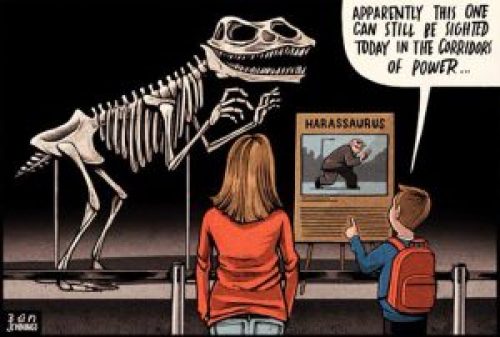Innocent but Profumed guilty
The early 1960s sex and spy scandal, the so-called Profumo Affair, led to the downfall of John Profumo, the UK Secretary of State for War, and, it is believed, both Harold Macmillan as the British Prime Minister and his successor’s Conservative government.
Christine Keeler, a central character in the drama that unfolded has just died at the age of 75. She was not a paragon of virtue by any means but should be remembered now as a victim and not a culprit.
Profumo successfully redeemed himself off-grid by quietly volunteering for decades at an east-end charity in London, but the reaction of the day was for the establishment to look after its own without any concern for the price paid by others.
One of those others was Stephen Ward, an osteopath and socialite who killed himself in the midst of later court proceedings that related to trumped-up charges of living off immoral earnings; a case now believed to be both a miscarriage of justice and an act of revenge in behalf of the establishment. Another was Keeler who, in the 1970s, defined her later life as surviving not living.
Growing up through the 1970s, my generation was fully aware of the scandal, where it was posited in terms of good-time girls on the make corrupting a highly thought of politician. In fact history shows it to have been down to the self-perceived entitlement of powerful men within the establishment to do as they please.
Keeler’s early life had been one of poverty, abandonment and sexual abuse. She arrived in London, vulnerable, in her teens at a time when the 1960s free-love revolution was about to take off. Her participation in that revolution, which she freely acknowledged, led to the subsequent condemnation of her as a cheap tart whereas it now bears all the hallmarks of the abuse of a woman by men in powerful positions. The recent revelations about Harvey Weinstein et al simply revisit that behavioural paradigm.
Keeler’s son put it well in a comment that he made to the political correspondent Lewis Goodall soon after her death, “I hope we now live in a time where we stop blaming women for the urges of men”, a view reinforced with clarity by the journalist Josh Lowe, “Apt time I guess for us to remember a young woman mistreated by powerful men then painted as the architect of their downfall.”
The veteran writer and political commentator Harry Leslie Smith also opined tellingly: “I hope Christine Keeler found some measure of happiness in later life because she was horribly abused by men, the press and a system that favoured the entitled. Plus ça change, plus c’est la même chose.”
So, it’s a serious limerick this week …
The Minister that tried to conceal a
Licentious and lewd misdemeanour
Paid for his vice
At a fraction the price
That was paid by the ill-starred Ms Keeler.
In contrast to the advantage taken of her by others, when faced with an obligation for a nude shot that Keeler didn’t really want to do, the photographer, Lewis Morley, cleared the studio of others and had her sit against the back of a chair (a copy of the classic Arne Jacobsen design). Thus was she fully naked as contractually obliged, but without any onlookers and with all the naughty bits concealed (at least that is one account – according to Keeler herself she was still partly clothed, either way Morley respected her in a way that few others in her life had).
I don’t think it is gratuitous to show it here. It is, after all, a photograph in the realm of fine art and not voyeurism and it is certainly one of the most iconic photographs of the 1960s

Captured on medium format 120 film rather than 36mm stock, ‘that’ picture was the last shot taken during a studio session to promote a film that, ironically, was never made.
Here’s the contact print from Morley’s photographic negatives:




















You must be logged in to post a comment.